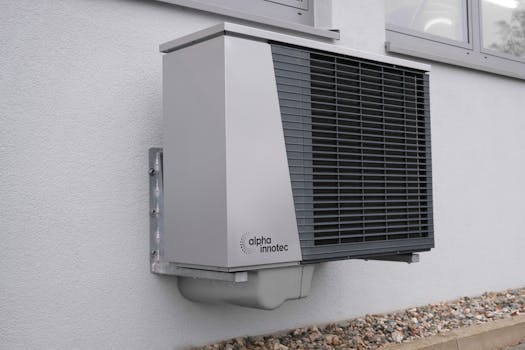Heat Pump Hype: Is This Technology Right for Your Climate?
When it comes to heating and cooling systems, homeowners are always on the lookout for the latest and greatest technology that can provide them with maximum comfort and energy efficiency. One of the newest innovations on the market is the heat pump, which is gaining a lot of attention due to its ability to both heat and cool a home. But with so much hype surrounding this technology, many are left wondering if it is the right choice for their specific climate. In this article, we will dive into the world of heat pumps and determine whether this technology is worth the hype.
What is a heat pump?
A heat pump is a heating and cooling system that works by transferring heat from one location to another. This is done by using a small amount of energy to move heat from the outside air or ground into your home during the winter, and then reversing the process to remove heat during the summer. This makes a heat pump an incredibly efficient and cost-effective option compared to traditional heating and cooling systems that rely on fossil fuels.
How does a heat pump work?
Heat pumps use the principles of thermodynamics to operate. They consist of two main parts – an indoor unit and an outdoor unit. The outdoor unit contains a compressor, which pressurizes and circulates refrigerant through the system. The indoor unit contains an evaporator coil, which absorbs heat from the air inside your home and transfers it to the refrigerant. The refrigerant is then pumped back to the outdoor unit where it releases the heat into the outside air, effectively cooling your home. In the reverse cycle, the refrigerant absorbs heat from the outside air and brings it into your home, providing heat during the colder months.
Is a heat pump right for your climate?
One of the main factors to consider when deciding if a heat pump is right for your climate is the average temperature in your area. Heat pumps work best in moderate climates where the temperature does not drop too low in the winter. This is because they use the outside air as their source of heat, and if the temperature falls below a certain point, the system may struggle to keep up. However, advancements in technology have led to the creation of heat pumps that can still operate efficiently in colder climates.
Air source vs. ground source heat pumps
There are two main types of heat pumps – air source and ground source. Air source heat pumps use the air as their source of heat, while ground source heat pumps use the earth’s temperature to provide heat. Overall, ground source heat pumps are more efficient since the ground temperature remains relatively consistent throughout the year. However, they are also more expensive to install and may not be suitable for all properties, making air source heat pumps a popular choice.
Benefits of a heat pump
One of the main benefits of a heat pump is its energy efficiency. Since it does not rely on fossil fuels, it can save homeowners a significant amount on their energy bills. Additionally, heat pumps do not produce any emissions, making them an environmentally friendly option. They also do not require regular maintenance and can last up to 20 years with proper care, making them a cost-effective choice in the long run.
Final thoughts
The hype surrounding heat pumps is well deserved, as they offer a range of benefits that traditional heating and cooling systems cannot. However, whether this technology is right for your climate depends on a variety of factors, such as your location and preference. It is always best to consult with a professional HVAC technician to determine the best heating and cooling system for your home. Overall, heat pumps are a promising technology that can provide homeowners with efficient and eco-friendly comfort all year round.







